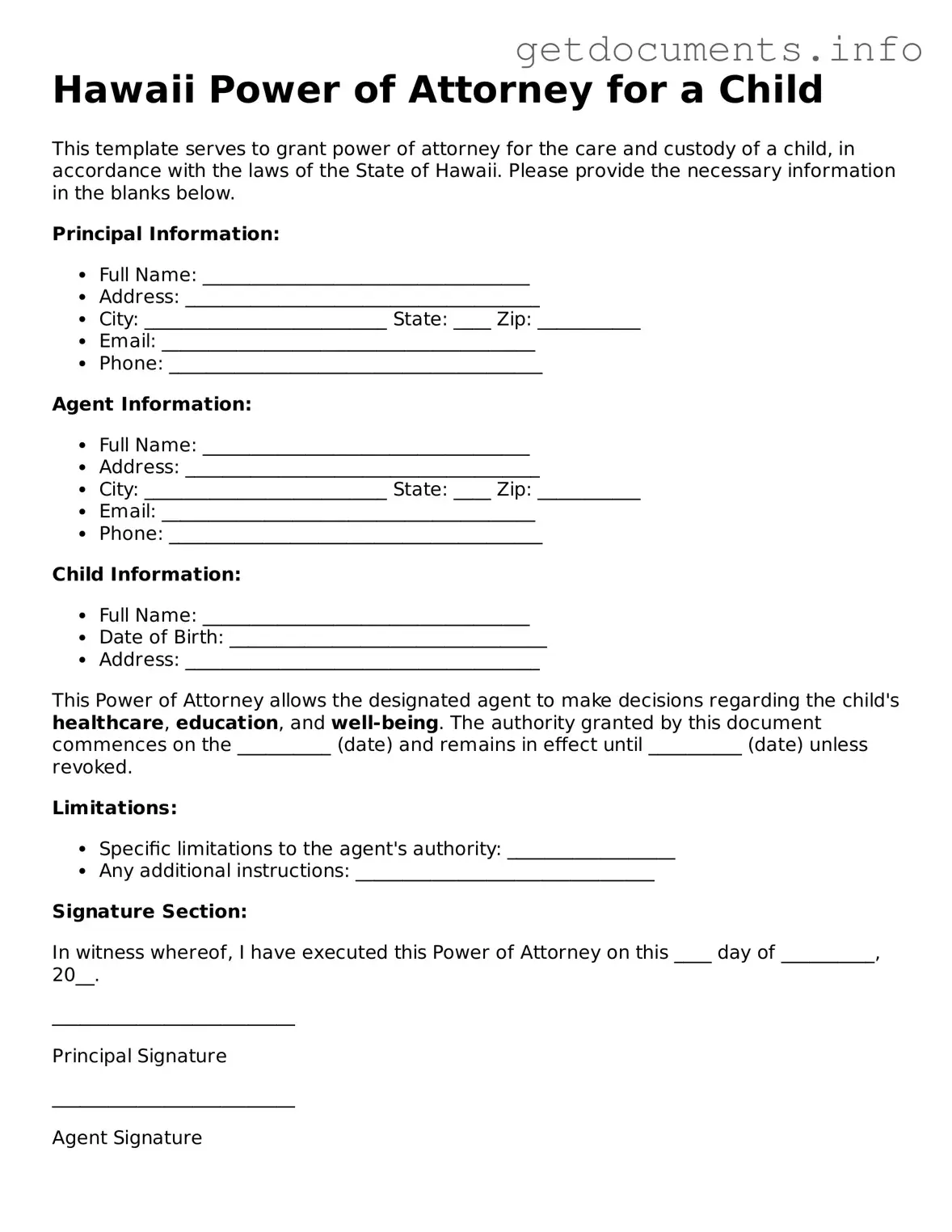Free Power of Attorney for a Child Template for Hawaii
The Hawaii Power of Attorney for a Child form allows a parent or legal guardian to designate another adult to make decisions on behalf of their child in specific situations. This legal document can be crucial for temporary arrangements, such as when a parent is traveling or unable to care for their child. Understanding how this form works can help ensure that your child's needs are met even when you are not available.
Ready to fill out the form? Click the button below to get started.
Access Power of Attorney for a Child Editor

Free Power of Attorney for a Child Template for Hawaii
Access Power of Attorney for a Child Editor
Got places to be? Complete the form fast
Fill out Power of Attorney for a Child online and avoid printing or scanning.
Access Power of Attorney for a Child Editor
or
⇩ PDF File
